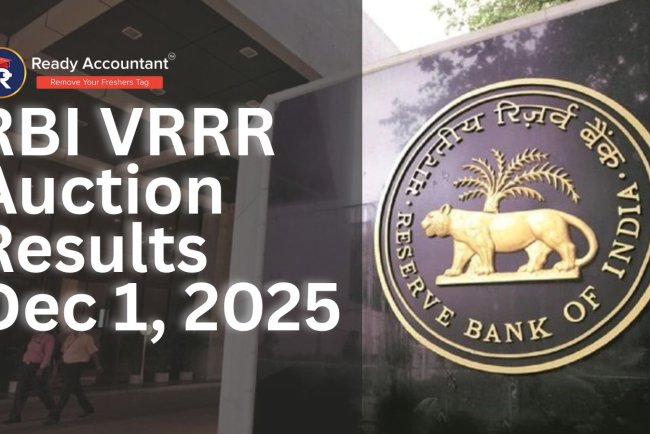Impact of SEBI Regulations on Corporate Governance in India
The Impact of SEBI Regulations on Corporate Governance in India has been significant in building transparency, accountability, and investor confidence. SEBI has introduced strict rules on board structure, disclosures, insider trading, and reporting through frameworks like the LODR Regulations. These reforms have reduced frauds, improved board accountability, and aligned Indian companies with global governance standards. While small firms face compliance challenges, SEBI continues to strengthen its framework with technology, ESG disclosures, and stronger shareholder rights. For professionals, skills in Certified Corporate Accounting, SAP FICO (Finance & Controlling), and Taxation (Income Tax & GST) are increasingly valuable to help companies meet SEBI’s governance requirements.
Corporate governance means the way a company is managed and controlled. It ensures that businesses work in a fair, transparent, and responsible manner. In India, the Securities and Exchange Board of India (SEBI) plays a very important role in building strong governance standards. SEBI makes rules that companies must follow so that investors’ money is safe, companies are accountable, and markets remain fair.
This article explains the Impact of SEBI Regulations on Corporate Governance in India, and how these rules are shaping companies, investors, and professionals in the fields of accounting, finance, and taxation.
What is Corporate Governance?
Corporate governance is about rules, systems, and practices that guide how a company is run. It makes sure that companies:
-
Share correct and clear information with investors
-
Treat shareholders and stakeholders fairly
-
Avoid fraud or misuse of power
-
Take responsible business decisions
In India, corporate governance became more important after scams like the Satyam case in 2009, where poor checks and balances caused huge losses. That’s when SEBI made stricter rules to improve corporate behavior.
Role of SEBI in Improving Corporate Governance
SEBI has brought many reforms over the years. Some of the most important ones are:
-
Board Composition Rules
-
Companies must have independent directors who are not linked to the owners.
-
This prevents promoters from making decisions only for their own benefit.
-
-
Disclosure and Transparency
-
Companies have to share quarterly financial results, shareholding details, and important company news with the public.
-
-
SEBI (LODR) Regulations, 2015
-
These rules standardize how companies disclose information.
-
They ensure that timely and correct data is given to investors.
-
-
Insider Trading Rules
-
Prevent company insiders from using secret information to make unfair profits.
-
-
Corporate Responsibility Reporting
-
Companies must report on their social responsibility activities in their annual reports.
-
Impact of SEBI Regulations on Corporate Governance in India
1. More Transparency
Companies now share more details with investors. Regular reports and disclosures have built greater trust in Indian businesses.
2. Better Investor Protection
SEBI rules protect small investors from fraud and insider trading, making markets fairer for everyone.
3. Stronger Board Accountability
Independent directors on boards make sure decisions are not biased and represent all stakeholders.
4. Reduced Frauds and Misuse
Strict audits and disclosure rules have lowered the chances of scams and mismanagement.
5. Global Recognition
Thanks to SEBI, Indian companies now follow global standards of governance. This has made them more attractive to foreign investors.
Examples of SEBI’s Role in Action
-
Satyam Scam (2009): This corporate fraud forced SEBI to tighten governance norms.
-
Infosys and Tata Group Issues: SEBI’s regulations helped protect shareholder rights and settle board-level disputes.
These examples show how SEBI regulations have shaped corporate culture in India.
Importance for Accounting and Finance Professionals
The Impact of SEBI Regulations on Corporate Governance in India also creates opportunities for students and professionals in finance and accounting.
Companies now need experts who can handle compliance, reporting, and taxation. Skills like:
-
Certified Corporate Accounting: Helps professionals prepare accurate company reports and financial disclosures.
-
SAP FICO (Finance & Controlling): Used by companies to manage accounts and comply with SEBI’s reporting rules.
-
Taxation (Income Tax & GST): Knowledge of tax laws is important to ensure companies file proper returns and follow SEBI norms.
Learning these skills not only boosts career growth but also makes professionals valuable in ensuring good corporate governance.
Challenges in Following SEBI Regulations
Even though SEBI has made many improvements, some challenges remain:
-
Compliance Costs: Smaller companies find it hard to meet the high cost of compliance.
-
Finding Independent Directors: Getting truly independent directors is still difficult for many firms.
-
Implementation Gaps: Some frauds still happen due to weak enforcement.
What Lies Ahead?
SEBI is continuously working to strengthen governance. In the future, we can expect:
-
Technology in Compliance: Use of AI, automation, and blockchain for faster and safer reporting.
-
Focus on ESG (Environmental, Social, and Governance): Companies will need to disclose their impact on the environment and society.
-
Stronger Shareholder Rights: Better participation of minority shareholders in decision-making.
These steps will make Indian markets stronger and more trustworthy.
Conclusion
The Impact of SEBI Regulations on Corporate Governance in India is very clear—Indian companies are now more transparent, accountable, and investor-friendly. These reforms have made markets safer, reduced fraud, and aligned Indian companies with global standards.
For professionals, this is the right time to build skills in Certified Corporate Accounting, SAP FICO (Finance & Controlling), and Taxation (Income Tax & GST). With these, they can play a key role in helping companies meet SEBI’s governance requirements.
What's Your Reaction?




















